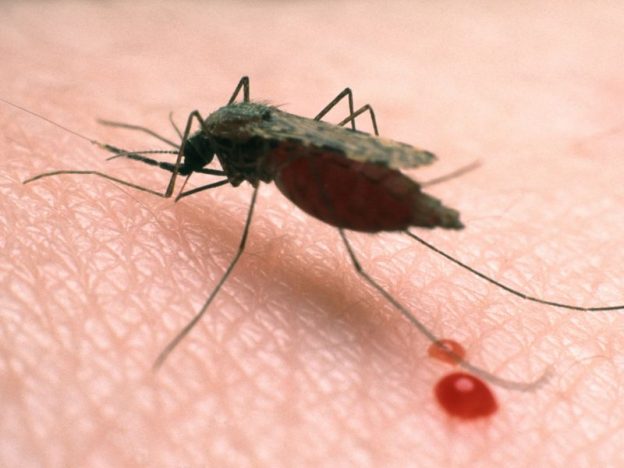After the pandemic effects, and total lockdowns, people again want to travel and discover countries they have never been to before. It involves luxury islands, European spots, as well as always in demand tropical countries. The latter option might be a little bit risky taking into consideration the possibility of acquiring malaria. So, you have to either check whether your trip-country is affected by it and choose another country, or ensure you care about the prevention of it, and know the possible steps if it is diagnosed on the spot. Off we go to the key tips for such travelling!
The Profile of Malaria Disease
Let’s start by saying that as per the World Health Organization, approximately half of the world’s population daily is at a great risk of acquiring malaria without even knowing about it. Annually, around 30K of international travellers are infected regardless of how hard they try to avoid it. Nowadays, malaria is defined as follows – a disease caused by parasites through bites. It can be a fatal health condition and requires immediate treatment to avoid death.
Note, it might be super ordinary to be bitten by mosquitos in your country during the summer, however, even one bite in tropical countries may be harmful.
The next thing to consider is Plasmodium. What’s that? You should know that mainly female mosquitoes bite humans, and exactly they transmit to the human bodies parasites. Malaria, in turn, can be caused by 4 types of that parasite. All you can do is to take care of your immunity which may affect the transmission and the severity of malaria. Again, for the best immunity boost, you should refer to your doctor.
What countries to avoid if you are scared to death about malaria? You might laugh, however, it is all about one’s luck and randomness. Yes, on most occasions, malaria is widespread in the Africa continent where the mortality rate was 90% linked to this fatal disease. In particular, you’d better be careful with such countries as Nigeria, Uganda, or Mozambique. Still, you can also contact the embassy of your country in the preferred destination for travelling, and ask about the risk and rates of malaria out there. Otherwise, this information can be accessed through the WHO. Prevention and preparation are better and always cheaper than treatment.
Again, let’s not be super obvious, however, prior to travelling to countries with a high risk of malaria, you should speak to your healthcare provider about the necessary preventative measures. For instance, a doctor may recommend taking Vibramycin (Doxycycline), an antibiotic available in the US by prescription. In short, it fits the intake of adults and children who are at least 8 years old. For more information on the dosing regimen of Vibramycin prior to travelling to the area where malaria transmission occurs, refer to here immunepharma.com/infections/vibramycin-doxycycline.
What Are the Widespread Signals of Malaria?
Keep in mind, malaria symptoms may be easily mistaken for the flu, and mainly doctors can spot the right health condition you are affected to at the moment.
Yet, within approximately two weeks of time after being bitten, you can come across the following:
- pyrexia;
- shiver;
- extreme headaches;
- stomach issues like vomiting.
If not treated immediately, they can lead to fatal consequences.
Preventing Malaria Consequences
Alongside first-line preventative modalities like Vibramycin, you should incorporate other solutions. There might be pills designated for certain countries, strange it may sound. For example, parasites causing malaria in some countries are resistant to the most commonly prescribed drugs to treat it.
Then, you have to avoid rainy seasons regardless of how hard you love them or seek to meet. During the rainy season, you can be at great risk of being bitten. It especially concerns your staying in nature instead of hotels. For example, many travellers love discovering the jungles or local lifestyle by living in tents under the open air. In such cases, one should care to grab anti mosquito nets and designated creams. After that, you should wear long sleeves and full-length pants. Do always spray clothes with a repellent.
If possible, you should stay in places with effective air conditions to not keep doors and windows open.
Finally, you can also contact the local travel agent for a follow-up. For example, a person who builds for you a destination and things to do out there should also care about your understanding of all the risks. It might involve places to refer to in the case of mosquito bites, the address of the embassy, or the assistance of translators for your spoken languages if you travel to very specific tropical destinations. By having a vacation, ensure to overlook the condition of your body even when you believe you did not experience any bites. During the night, you might not even notice the bite, and leave it to get worse.
Let’s sum up. Malaria is a fatal disease that can catch you in many tropical countries regardless of your preventative measures implemented. Prior to travelling, you should inform your doctor about a potential trip and discuss the possibility of taking some medications like Vibramycin or other topical solutions. You should always take with you creams and anti mosquito nets if you plan to spend nights in nature. In case of the first symptoms of malaria, seek professional local help immediately.
You can find more information about Malaria in this resources:

